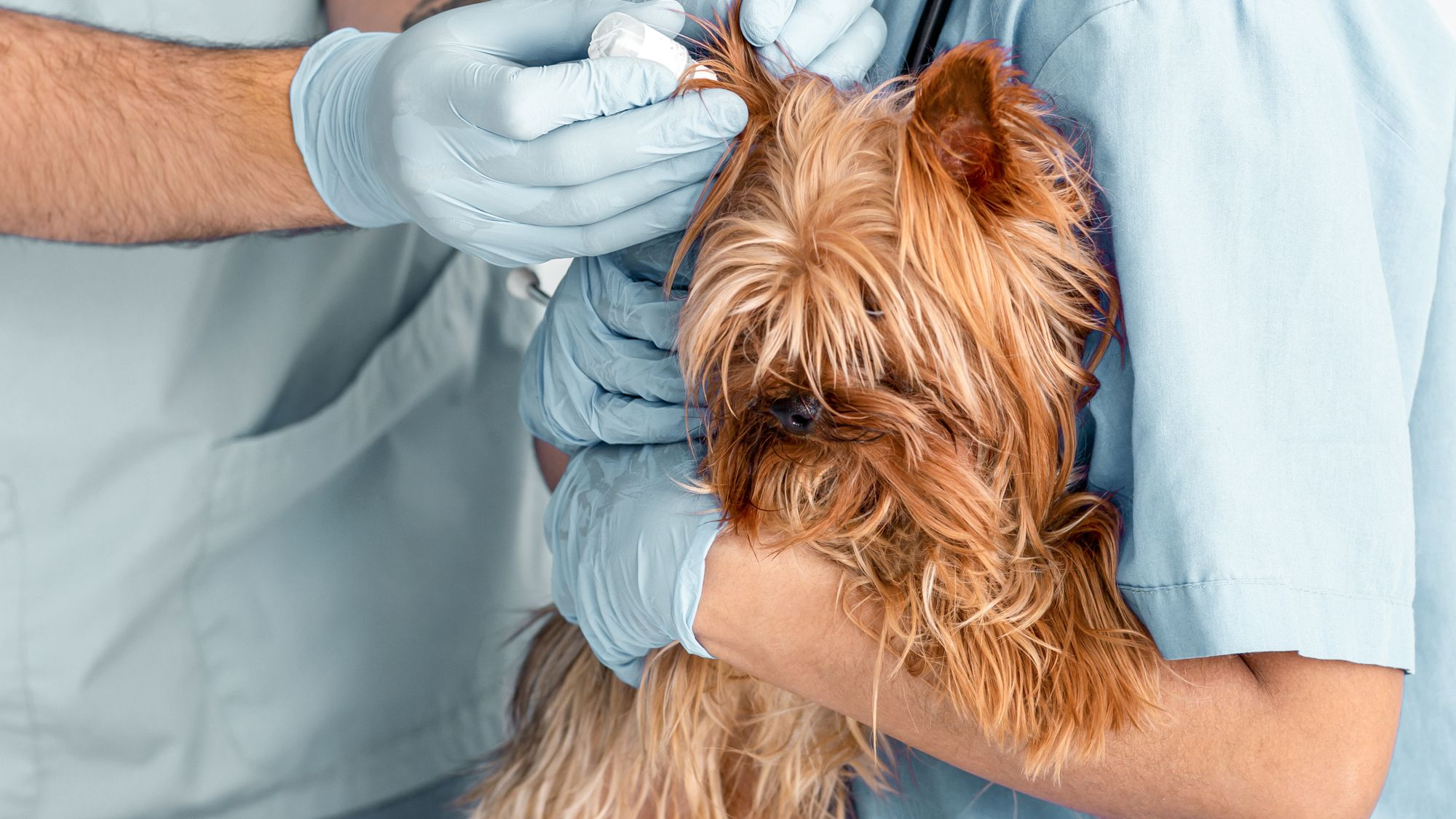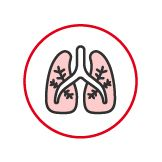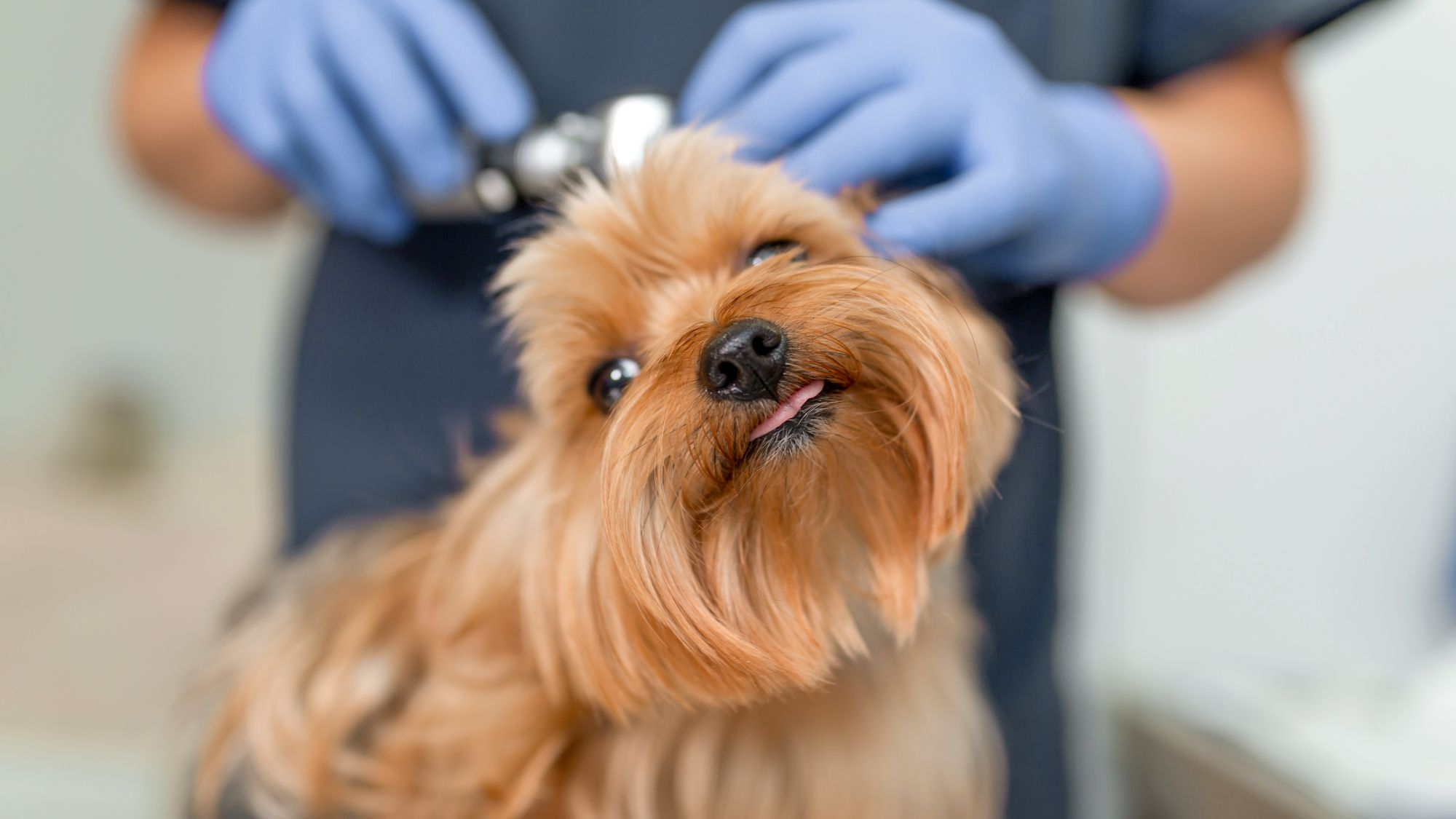Yorkshire Terrier health: what you need to know
With the right nutrition and care, Yorkshire Terriers can live long and healthy lives. However, they can be susceptible to several health conditions; here we explain some of the more common issues, how to spot the warning signs and lessen potential risks.
Article

Yorkshire Terriers make clever, lively companions and generally they are healthy dogs. Like any dog breed however, they are predisposed to certain health conditions.
While it can be upsetting to think about your dog being sick, it's important to be aware of these issues because the earlier a problem is spotted and diagnosed, the sooner treatment can begin – which can often improve the prognosis.
While it can be upsetting to think about your dog being sick, it's important to be aware of these issues because the earlier a problem is spotted and diagnosed, the sooner treatment can begin – which can often improve the prognosis.

Yorkshire Terrier: breed overview
If you’re thinking of welcoming a Yorkie into your family, it’s worth familiarising yourself with their unique health needs to help you mitigate risks.Firstly, Yorkshire Terriers are one of the smallest dog breeds, with an average weight of 3 kgs and a standing height of around 20 cm.
Their diminutive size can make them susceptible to fractures and they’re generally more fragile than larger dog breeds, so you’ll need to stay watchful and always handle them with care.
The Yorkshire Terrier life expectancy is particularly long, with the average dog living for approximately fifteen years. This makes preventative health care and tailored nutrition especially important to a Yorkshire Terrier’s long-term wellbeing.

One more thing to consider is that as a terrier breed, Yorkies are naturally courageous. This can sometimes lead to problem behaviours and may even result in them challenging dogs much larger than themselves. Therefore, early socialisation and training are essential.
Yorkshire Terrier common health issues
Your Yorkshire Terrier may never develop a health condition but there are certain disorders it may be more susceptible to. Below is a list of the most common problems associated with Yorkshire Terriers.If you’re welcoming a Yorkie puppy into your home, you should always ask the breeder about the medical history of its parents and grandparents and check whether they were screened as part of the British Veterinary Association (BVA) and Kennel Club testing service. If the puppy has a hereditary condition make sure you consult your vet so you are aware of the possible long term outcomes.\


Dental sensitivity
The most frequent Yorkshire Terrier complaints are about mouth and teeth.A Yorkie’s jaw is incredibly small and when their adult teeth emerge at four months old, the milk teeth will frequently remain. This causes overcrowding within the mouth and the accumulation of food debris, which can lead to gum disease and the growth of bacteria. These bacteria can spread through the body and may ultimately damage the dog’s heart and liver.
To be proactive, clean your Yorkie’s teeth every day and feed them meals that have been specially designed to limit tartar build-up – such as Royal Canin Yorkshire Terrier Dry Food.
When your puppy is teething, check if any baby teeth are persisting as the adult teeth come through. If they are, visit your vet.\

Dislocating kneecap
This hereditary condition is a common problem among toy breeds and will usually only present itself in later life.Also known as patellar luxation, it occurs when the femur, patella and tibia bones do not align as they should. The severity of the condition varies and so the symptoms may be mild, with only temporary lameness in a joint or acute with full loss of motion. It may also give the dog a bowlegged appearance and cause them difficulty when sitting.
In the most severe cases, surgery would be required.

Tracheal Collapse
If your Yorkshire Terrier develops a honking cough, it could be a sign of tracheal collapse.This refers to a condition that happens when the trachea (windpipe) gradually loses rigidity to cause an air obstruction. It is most common in Yorkies aged six and over, who may show signs of breathing difficulties and exercise intolerance in addition to the characteristic cough.
When taking your Yorkie on a walk, it is advisable to use a harness rather than a collar in order to avoid putting additional pressure on their neck and throat.
Medication can also lessen breathing problems, but surgery may be required in more serious cases. Consult your vet as soon as possible if your dog starts coughing.

Urinary stones
Urinary stones are fairly common in dogs, particularly in smaller breeds like the Yorkshire Terrier.The crystals form within the bladder as a result of an infection, nutrient imbalances, or a hereditary condition. Typical indicators are blood in the dog’s urine, constant straining, and an increased frequency to urinate.
Bladder stones if left untreated, may lead to a build-up of toxins within the body and can be life threatening if they prevent the dog from urinating. Depending on the type and size of the stone, treatment may include surgery.
If your Yorkie is diagnosed with urinary stones, they may need to go on a preventative diet. Royal Canin’s S/O food dissolves struvite stones, increases the volume of urine, and contains a combination of antioxidants that neutralise free radicals.
Good hydration is key, as water helps to dilute and flush crystals from the body before the urinary stones can form. Your dog should always have access to fresh water and be given the opportunity to urinate regularly throughout the day. Wet food will also help to keep your Yorkie hydrated, as it generally contains more water than dry food.

Hypoglycaemia
Hypoglycaemia is a serious condition that toy breeds, like the Yorkshire Terrier, are particularly susceptible to.Caused by low blood sugar levels, it usually manifests itself in puppies that are exposed to stress factors like parasites or poor nutrition, but older dogs with an underlying condition may also be affected.
Signs to look out for may include trembling, weakness and lack of energy. If left unresolved this can progress to seizures, coma and eventually death.
If you think your dog is showing signs of hypoglycaemia, speak to your vet immediately. And always keep up with any vaccination and worming programme recommended by your veterinarian.

Dislocating lens
If the lens within a dog’s eye becomes detached from its usual position, it can cause severe difficulties for them.The condition is known as lens luxation, and the primary form is an inherited defect that many terrier breeds are prone to. The symptoms vary depending on the type and extent of the dislocation, but you may see a change of appearance in the dog’s eye or clouding, inflammation, and squinting.
The condition is usually very painful, and it may result in blindness without immediate treatment.
A regular health check with your vet will enable them to identify any issues but if you have any concerns about your Yorkie's eyes or eyesight, consult a vet immediately.

The importance of nutrition
Although this may seem like a long list of conditions, most Yorkshire Terriers will go through their life without ever developing one of these issues. And as mentioned earlier, on average they live to be fifteen years old.Tailored nutrition will play a large role in a Yorkshire Terrier's development and can help them better cope with health challenges.

Importance of a healthy diet
Royal Canin's Yorkshire Terrier Breed Health range is specifically designed for a Yorkie’s unique physiology. Each product provides targeted nutrients that actively support many areas of the body, including mobility, digestion, skin, and natural defences. Make sure you always speak to your vet if you have any questions or concerns about your dog's health.Nutrition suitable for all ages
We know how important it is to make sure your puppy is being fed nutritious food, as the correct diet will support their health and wellbeing throughout their whole life. Which is why we have created a range of Breed Health products to meet the needs of Yorkshire Terriers. Learn more about the benefits of switching to a breed-specific range.
Like & share this page